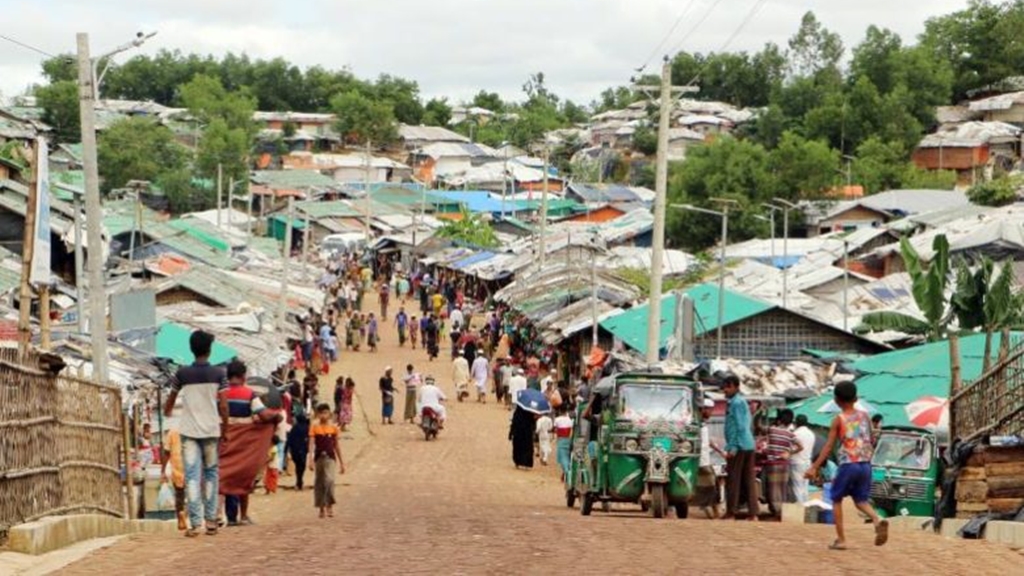
UN mission head says risk of genocide recurring in Myanmar
- 23/10/2019
- 0
UNITED NATIONS (AP) — The head of a U.N. fact-finding mission on Myanmar warned Tuesday that “there is a serious risk of genocide recurring” against the estimated 600,000 members of the Rohingya Muslim minority still living in the country.
Marzuki Darusman told the General Assembly’s human rights committee that “if anything, the situation of the Rohingya in Rakhine state has worsened,” citing continued discrimination, segregation, restricted movement, insecurity and a lack of access to land, jobs, education and health care.
The government of Myanmar, a Buddhist-majority nation, has refused to recognize Rohingya as citizens or even as one of its ethnic groups, rendering the vast majority stateless.
Myanmar’s military began a harsh counterinsurgency campaign against the Rohingya in August 2017 in response to an insurgent attack. More than 700,000 Rohingya fled to neighboring Bangladesh to escape what has been called an ethnic cleansing campaign involving mass rapes, killings and burning of their homes.
The Independent International Fact-Finding Mission on Myanmar, which Darusman heads, said in its final report last month that Myanmar should be held responsible in international legal forums for alleged genocide against the Rohingya.
“There is a strong inference of continued genocidal intent on the part of the state in relation to the Rohingya and there is a serious risk of genocide recurring,” Darusman said Tuesday.
“Myanmar is failing in its obligations under the Genocide Convention to prevent genocide, to investigate genocide and to enact effective legislation and to enact effective legislation criminalizing and punishing genocide,” he said.
Darusman said the fact-finding mission has transferred 1,227 interviews with victims and witnesses of crimes against the Rohingya to another specially established U.N. body, the Independent Investigative Mechanism for Myanmar. It said the material included “a list of over 150 people suspected of involvement in numerous international crimes.”
He called on countries to support the investigation by the prosecutor of the International Criminal Court of alleged crimes on the Bangladesh-Myanmar border and plans for Gambia, on behalf of the Organization for Islamic Cooperation, to pursue a case against Myanmar before the International Court of Justice for breaching the 1948 Genocide Convention.
In the absence of a referral by the U.N. Security Council of the situation in Myanmar to the ICC, he said, “these initiatives are all the more important.”
Darusman urged the assembly to also consider additional measures, including the establishment of an ad hoc tribunal like the U.N. did for crimes in Rwanda and the former Yugoslavia.
Myanmar’s U.N. ambassador, Hau Do Suan, noted his government doesn’t recognize the fact-finding mission, calling its views “one-sided” and based on “misleading information and secondary sources.” He accused the mission of ignoring the situation of the Hindu minority and other ethnic minorities in Rakhine state.
The ambassador said that Myanmar’s government takes accountability seriously and that perpetrators of all human rights violations “causing the large outflow of displaced persons to Bangladesh must be held accountable.”
“However, we will never accept any attempt to exert unjust and unwarranted political pressures under the pretext of accountability,” Hau said.
Yanghee Lee, the U.N.’s independent investigator on Myanmar, told the assembly that the Independent Commission of Inquiry formed by Myanmar’s government “does not represent a possible end to this impunity.”
“It has not produced a single report after nearly 15 months,” she said.
Lee also urged the international community to impose sanctions on companies owned by Myanmar’s military and on “its commanders most responsible for serious violations.”
Lee said that “there is no discernible improvement” in the human rights situation in Myanmar.
“Discrimination against religious minorities continues unabated,” she said. “I am informed of 27 villages which describe themselves as ‘Muslim free,’ banning Muslims from entry.”
Myanmar’s government has barred both Darusman and Lee from entering the country — and both stressed that it is unsafe for the Rohingya refugees to return from Bangladesh.
Last month, Lee said, up to 30 Rohingya were arrested just because they left Rakhine state. They were denied access to lawyers, she said, and a court sentenced 21 adults to two years in prison and sent eight children to a detention center while a 5-year-old boy went to prison with his mother.






